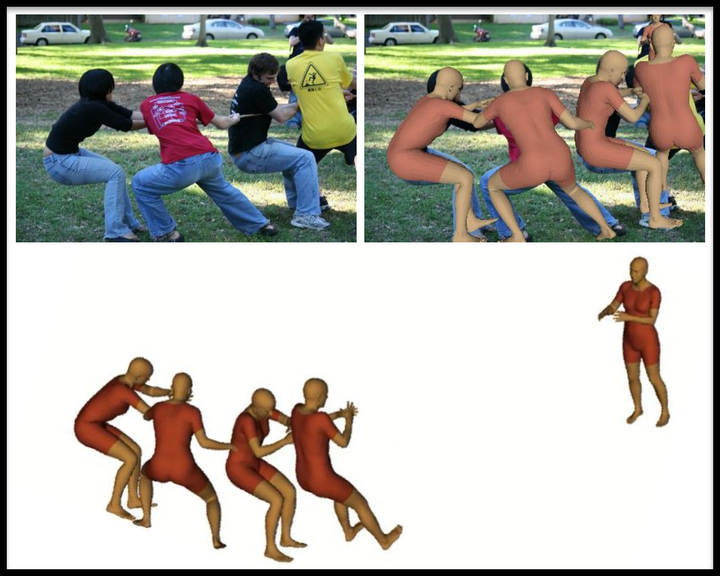REMIPS: Physically Consistent 3D Reconstruction of Multiple Interacting People under Weak Supervision

Abstract
The three-dimensional reconstruction of multiple interacting humans given a monocular image is crucial for the general task of scene understanding, as capturing the subtleties of interaction is often the very reason for taking a picture. Current 3D human reconstruction methods either treat each person independently, ignoring most of the context, or reconstruct people jointly, but cannot recover interactions correctly when people are in close proximity. In this work, we introduce \textbf{REMIPS}, a model for 3D \underline{Re}construction of \underline{M}ultiple \underline{I}nteracting \underline{P}eople under Weak \underline{S}upervision. \textbf{REMIPS} can reconstruct a variable number of people directly from monocular images. At the core of our methodology stands a novel transformer network that combines unordered person tokens (one for each detected human) with positional-encoded tokens from image features patches. We introduce a novel unified model for self- and interpenetration-collisions based on a mesh approximation computed by applying decimation operators. We rely on self-supervised losses for flexibility and generalisation in-the-wild and incorporate self-contact and interaction-contact losses directly into the learning process. With \textbf{REMIPS}, we report state-of-the-art quantitative results on common benchmarks even in cases where no 3D supervision is used. Additionally, qualitative visual results show that our reconstructions are plausible in terms of pose and shape and coherent for challenging images, collected in-the-wild, where people are often interacting.